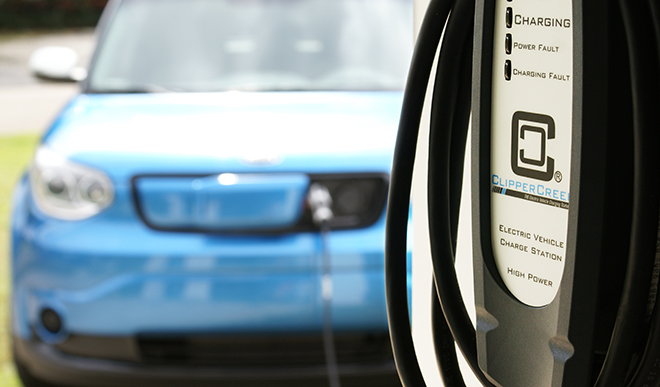Although new EVs still cost considerably more to buy than comparable legacy vehicles, we’re seeing more and more articles arguing that the total cost of ownership, considering savings on fuel and maintenance, is actually lower. However, such arguments are moot for car buyers whose budget won’t cover any new car. For these folks (who probably represent the majority of car buyers), there’s good news: plug-in vehicles are becoming plentiful on the used-car market, and there are some killer deals to be had (as your favorite EV writer, who bought a used LEAF and a used Prius Plug-in, can attest).
There are a couple of reasons why used EVs are available so cheap. First, many early adopters choose to lease rather than buy, and as the three-year leases run out, large numbers of lightly used vehicles hit the used market. Second, the makers of the moderately priced plug-ins – GM and Nissan – are continuously improving their vehicles, so the resale value of these models erodes quickly (Tesla is an exception). That’s bad news for the folks who bought new, but great news for those looking for a used bargain.
However, shopping for a used EV is not the same as shopping for a used legacy vehicle. Plug In America has released a guide for people planning to purchase a pre-owned plug-in.
The new Used EV Buyers Guide explains the finer points of used EV shopping. In some ways, it’s easier – EVs have far fewer moving parts to wear out – no timing belts, fuel pumps, fuel injectors, manifolds, transmissions, piston rings, oil filters, crankshafts…With a used EV, says PIA, the only major concern is the quality of the battery. PHEVs do have ICE components, but they experience less wear and tear than the odometer mileage suggests, because some of those miles are powered by the electric motor (for the same reason, a PHEV needs less frequent oil changes than a dinosaur burner does).
“The inclusion of a battery warranty is perhaps the most desirable attribute to look for in a used EV,” says PIA. All EVs sold in the US carry a battery warranty good for 8 years or 100,000 miles. This covers only battery defects, but some manufacturers also warrant against any major loss of battery range. Certified pre-owned vehicles may come with an extended factory warranty.
Warranty or no warranty, it’s important to verify the battery’s state of health. PIA explains that this can be ascertained by performing an on-board diagnostics check. For this you’ll need to find a repair shop that specializes in EVs (for example, Tampa Hybrids in Florida) – outside of California, a used car lot or ordinary mechanic probably won’t even know what you’re talking about.
“A used EV with a healthy battery is almost like a new car,” says PIA. “However, even an EV with a somewhat degraded battery could be an excellent deal if it meets your needs.”
The Used EV Buyers Guide also includes information on purchase incentives for used EVs that are offered by some states and local utilities.
Source: Plug In America


















































































